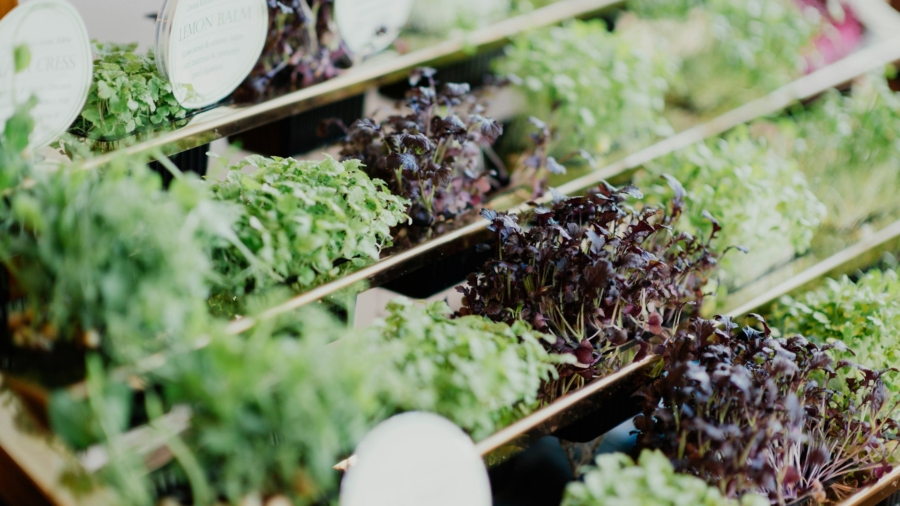Sourcing wholesale herbs that are both high-quality and sustainably produced is no small feat. Buyers, from large wellness brands to local apothecaries, face a complex landscape of global supply chains, quality assurance concerns, and increasing consumer demands for ethical sourcing. For everyone in the business of selling or using herbs—from red rose petals in teas to lavender in body care products—ensuring a commitment to ethical practices and rigorous quality control is not just good ethics but good business.
This guide is designed to help wholesale buyers, herbalists, and procurement managers understand the essential steps for sustainable sourcing. You will find strategies on identifying trustworthy suppliers, verifying herb quality, and maintaining an ethical supply chain. By the end of this post, you will have an actionable framework to confidently purchase sustainable herbs without sacrificing quality.
The Growing Importance of Sustainable Herbs in Wholesale
The past decade has witnessed a significant shift in consumer preferences. Shoppers are no longer content with products that merely deliver on efficacy; they now require traceability, responsibility, and transparency. Organic certifications, fair-trade practices, and a focus on environmental stewardship have become central to how herbs are cultivated, harvested, and brought to market.
Consumer demand is rising
According to a report by the American Botanical Council, sales of herbs labeled as organic or sustainable have grown twice as fast as conventional products in recent years. Buyers who ignore these trends risk falling behind competitors who promote their sustainable sourcing.
Environmental pressures impact supply chains
Climate change, soil depletion, and unsustainable harvesting have led to shortages of popular botanicals, like red rose petals. Sustainable practices help protect natural ecosystems, ensuring reliable supply for years to come.
Understanding What Makes Herbs Sustainable
To claim your herbs are truly sustainable, you need to look beyond the label. Sustainability in the context of herb production encompasses environmental protection, social responsibility, and long-term economic stability.
Environmental sustainability
Ethically sourced herbs are cultivated using practices that support local biodiversity. This means limiting chemical inputs, utilizing organic compost, and maintaining healthy crop rotations.
Social responsibility
Sustainable sourcing also values the well-being of local communities and workers. Fair wages, safe working conditions, and investments in the local economy contribute directly to the social sustainability of your supply chain.
Longevity in the marketplace
Suppliers committed to sustainable herbs often invest in longer-term relationships with growers. These strategies foster stronger supply chains and more consistent herb quality control.
How to Vet Wholesale Herb Suppliers for Ethical Sourcing
Locating a supplier who shares your values is crucial. But how can you tell if they walk the walk, not just talk the talk?
Key certifications to look for
- USDA Organic, Fair Trade, Non-GMO Project Verified: These third-party seals indicate a level of compliance with sustainable and ethical farming standards.
- Local cooperatives and direct trade relationships: Supporting small-scale growers through direct partnerships reduces exploitation and preserves traditional herb-growing knowledge.
Investigating transparency
Reputable suppliers should provide documentation on harvest locations, labor practices, and environmental impact. Scrutinize their sourcing policies and ask for audit reports where available.
Quality Control Measures for Wholesale Herbs
High standards in herb quality are non-negotiable, whether you’re sourcing red rose petals for tea blends or medicinal roots for tinctures.
Laboratory testing
Third-party lab testing verifies the identity, purity, and potency of herbs. Look for suppliers that routinely test for contaminants like heavy metals, pesticides, and microbes.
Handling and storage protocols
Quality can quickly diminish during processing and transit. Ensure your supplier uses proper drying, storage, and transport methods to maintain freshness and potency.
Visual and sensory evaluation
Upon arrival, inspect herbs for color, aroma, and texture. For instance, high-grade red rose petals should appear vibrant with a fresh, floral scent.
Creating Lasting Partnerships with Ethical Herb Producers
Wholesale buyers can’t always visit every farm, but nurturing relationships remains core to a transparent supply chain.
Building strong supplier relationships
- Frequent communication: Regular check-ins ensure both parties remain aligned on quality requirements.
- Mutual growth: Long-term contracts can give growers financial stability, which often results in better quality herbs for you.
Investing in capacity building
Larger buyers can fund educational programs about sustainable agriculture and support facilities that improve post-harvest processing, directly improving the quality of the herbs they source.
Addressing Challenges in Global Herb Supply Chains
The complex global nature of herb sourcing brings specific hurdles.
Supply chain disruptions
Weather events, geopolitical tensions, or sudden demand spikes can challenge the availability of certain botanicals.
Mitigating risk
Diversify your supplier base and maintain open communication. Ensure suppliers have contingency plans for emergencies and that they follow ethical sourcing even in the face of shortages.
Real-World Case Studies in Sustainable and Ethical Sourcing
Industry leaders have successfully moved toward sustainability while maintaining high standards.
Small herbal businesses partnering with cooperatives
Some apothecaries partner directly with grower cooperatives, bypassing large distributors and supporting communities engaged in organic farming.
Large wellness brands achieve both scale and responsibility
Major brands have switched to contract farming, providing farmers with technical advice and long-term price guarantees. This results in herbs that are not only high in quality but also ethically sourced.
Take Action for a Sustainable Herb Business
Sourcing herbs ethically and sustainably is achievable with careful planning, relationship-building, and a commitment to quality control. Whether you’re purchasing red rose petals or dried roots in bulk, focus on transparency and traceability in your network.
Start by auditing your current suppliers for their environmental and social practices. Seek new partnerships where needed, and always prioritize ongoing education on sustainable and ethical sourcing. Committing to responsible procurement benefits your customers, your business, and the planet.

